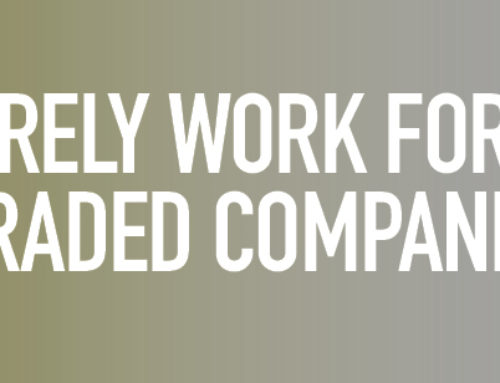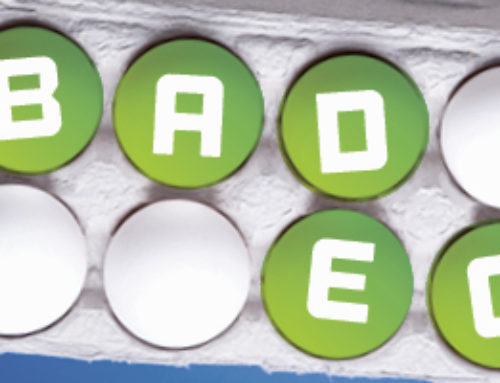I travel a fair amount for business. Once, on a connecting flight from LA to PHX I sat behind a young man who had just finished a week at a bull riding school. Tall and rail-thin, he stood out in the crowd of business travelers with his crisp white t-shirt and black hat. With a thick southern drawl, I listened as he started to tell his seatmate about bull riding and his aspiration to make it big.
The more he talked about his world the more I realized it was not that far off from mine.
Here’s what I learned from his stories:
Lesson 1. “In the beginning, the bull gets more points than you do.”
He said, “A bull and rider get a possible 50 points each. If you lose control you lose all your points, but the bull keeps his. When you’re starting out, you lose control a lot.”
It’s true in when you’re starting a business, too. It’s demoralizing in the beginning. The early years are the hardest. You’re learning so much. You will mess up. But, like the bull riders, you will improve.
Moral: You’re going to get beat up. Hang in there and keep learning.
Lesson 2. “The bulls just keep getting stronger.”
He said, “The better you get, the higher the bracket. It’s the reason it never seems to get any easier. You get better, and the rewards get higher, but the bulls just keep getting more athletic.”
There’s a reason they’re call growing pains. Growth hurts. The better you get, the more you take on – bigger accounts, bigger projects, higher stakes. The competition starts to notice you and the battle for business steps up a notch. It just never gets easier.
Moral: You may get used to it, but it never really gets easier. It’s work to get to the top in your profession, and work to stay there. If you aren’t comfortable with that, entrepreneurship may not be for you.
Lesson 3. “The first five seconds are what really matter. If you can hold on for five seconds, the rest is gravy.”
“A lot riders don’t make it past five seconds, so that’s really all you need to win. ‘Course, a lot happens in those five seconds. You’ve got to keep your wits about you. If you can hold on for the first five seconds, you have’em. If not, don’t count on being a winner.”
That was the best sales advice I’d heard all year. What happens early in a sales relationship absolutely impacts your chance for a successful outcome. I’d experienced it myself—first impressions count, and when it’s rocky it’s very difficult to recover. Truth is, those “firsts” happen all the time, especially when you’re starting up, but also as you grow into new markets and client sectors. Be mindful of how you’re beginning or don’t expect to be a winner.
Moral. Keep your wits about you! First ‘everythings’ count— and for the five years or so, everything is a first.
Lesson 4. “The clowns will save your a**. Always be good to them.”
I heard him go on to say, “They’re the unsung. They put it all on the line. Clowns bear the risk, and they rarely get the glory. Always remember, they’ve got the really tough job.”
You’re not the only one in the arena. It may be your name on the door, but your team members, your employees, and your vendors are a huge part of your success. I know, without them I’d be in a world of hurt. I am grateful for what they lay on the line for our success every day.
I’m also aware that the one who ‘really’ runs my client’s business is often not the CEO I work with. It’s their assistant, or their sales team, or even their spouse who isn’t even on the payroll. The unsung deserve some glory, and will always have my appreciation.
Moral: You are not the only one taking a risk out there. Just because you wear the big buckle, doesn’t mean you run the show. As the song says, Always be Humble and Kind.
Lesson 5. “Hold on for dear life… with your left hand.”
“It’s a challenge.” he said. “You hang on for your life with your left hand, but your right hand can’t touch anything, or you’re disqualified.”
I’m an artist — I was a graphic designer long before I was a business owner. Being right-brained comes as naturally to me as being right-handed. But starting my own creative agency taught me I had to learn how to grab my business by the spreadsheet and not let go. My left-brain accounting head is still not my strong side but I know better than to let my right-brain touch the reins.
Moral: Not everything about business ownership is going to come naturally. Hang on and get the skills you need, or find those who can help. Trying to run a business with the wrong hand on the ropes will get you DQ’d.
Lesson 6. “Balance is everything. Balance and rhythm.”
“You’ve got to stay balanced,” he said, “or you’ll lose points.”
Yep, running a business looks a lot like this: You’re getting pretty beat up, hanging on for dear life, hoping the mean SOB you’re riding doesn’t hurt you or the people out there with you trying to save your A$$. And yet, all the while you’re supposed to be smiling and waving and making it look easy.
It’s exhausting.
You’re going to need to find some balance. If you don’t— a study diet of the situation above will get you trampled. Learn to roll with it. Good times come and go.
My business has survived three wars, two recessions, a dot-com bubble, a real-estate bubble, the rise of desktop publishing and digital communication and the collapse of the print industry. Over the 25+ years I’ve been in business I had a miscarriage, lost my father, lost my mother, had a child, lost my mother- and father-in-law, nearly lost my husband, lost my marriage and … INSPITE of all that, currently life is pretty good and for that I’m grateful (STILL.)
But, I confess, I suck at balance. So I concentrate instead on rhythm. I bounce between family and business, personal and professional, time for myself, and time for friends. I don’t always find it balance but the rhythm keeps me sensitive to my need for it.
Moral: This is a wild ride we’re on. You have to find a way to stay comfortable in it.
Lesson 7. How you do it counts.
“The cool part,” he said, “is you can get points for style.”
In our branding work for clients we define their style. They’re often surprised to learn style is more than how you look, it’s how they work and act. It’s the values they live and work by. It’s a refection of integrity and reputation. Companies who honor and live their values tend to have deeper customer relationships, stronger market positions and are better able to weather economic turbulence. They truly get “points for style.”
Moral: People are watching. How you do what you do counts!
Lesson 8. Be the best you can be.
Then just before the flight ended I heard him say, “You, know, if you get good at it, you can make some good money.”
I smiled. That’s the simplest business truth I’d ever heard: Get really good at anything and you can make good money at it. Just Be The Best. You don’t have to work for the money, if you work to be the top, the money will come. And, if you love what you do it won’t feel like you’re working all the time— which you will be if you want to get good at something.
Moral. Work to be good—very good —and you can make some good money.
As we deplaned I lost the young bull rider in the crowd. I’ve often wondered who he was and whether he found the success he craved, but I’ll always remember the lessons he taught me.




